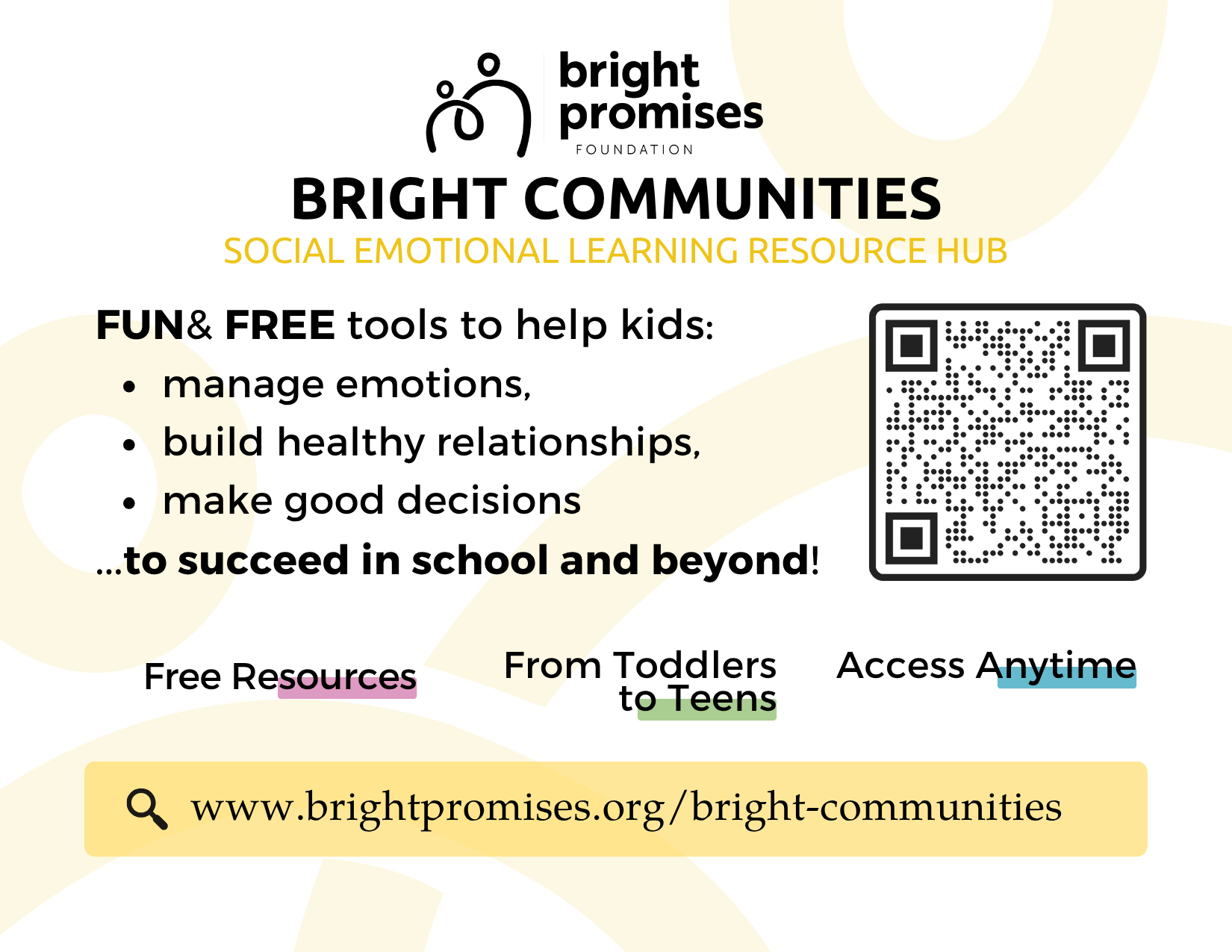Back to School: SEL, Learning Loss, and Youth Mental Health
An Invisible Struggle
When COVID-19 descended upon the nation in March 2020, schools and families across the country quickly turned to social and emotional learning (SEL) to seek guidance and support. School closures required a rapid transition to remote learning amid unprecedented and disproportionate experiences of loss that intensified existing educational inequities. Coinciding with the pandemic, the violent murders of George Floyd, Breonna Taylor, and Ahmaud Arbery, followed by tense nationwide protests, awakened a longstanding need to support racial justice, foster equity, and dismantle structural racism.
COVID-19 has continued to significantly impact the mental health of young people. 46% of young people report feelings of depression, stress, or anxiety during the pandemic (YouthTruth Survey, 2020) and there have been significantly higher rates of suicide-related behaviors, indicating that youth are experiencing elevated distress during these periods (Hill RM, et al. Pediatrics. Dec. 16, 2020).
COVID-19 has had particularly devastating impacts on children of color, children from low-income families, children in foster care, children experiencing housing insecurity, children with disabilities, and other marginalized children and youth. The pandemic has exposed long-standing systemic inequities with resulting gaps in opportunity and academic achievement. In addition, many affected youth have experienced additional trauma as the pandemic has cost lives and livelihoods in families that are already vulnerable.
Families, educators, and policymakers want to rebuild children’s skills and knowledge from this past year. But this is only possible by investing in the social and emotional health and well-being of children, parents, and caregivers.
How We Can Respond and Rebuild
For children and adults alike, social emotional learning (SEL) offers a powerful means to explore and express our emotions, build relationships, and support each other. Fostering strong relationships and supporting children and adults in building core SEL skills can promote well-being and mitigate negative effects of trauma in both the short and long term (Yoder, N., Posamentier, J., Godek, D., Seibel, K., & Dusenbury, L. (2020). Focusing on SEL during this time of recovery can help children appropriately respond to and manage stress and develop essential social and emotional skills that will support their mental health and successful return to in-person instruction this fall.
Since 2016, through the very successful SEL@Home: Social Emotional Learning at Home initiative Bright Promises has been working to support parents/caregivers as they learn to be champions for social emotional learning in their homes, school, and communities
Beginning in 2021, the SEL@Home Collaborative Action Project (CAP) will build on the success of the SEL@Home initiative by increasing access to high-quality, culturally relevant SEL resources through greater awareness, expanding the infrastructure of SEL programs for parents, training for professionals/community leaders, and providing basic supplemental resources designed for caregivers, their children and youth.
Through this project, Bright Promises and our program partners will create a collective resource that will inform and guide parents/caregivers of children of different ages/abilities, as well as professionals in the field on where to find current SEL@Home resources and programming.
This project will also help to increase parents’ and caregivers’ access to SEL mutual support networks, resources, and tools relevant for them, and support the development of SEL leadership capacity among parents and caregivers, with the greatest focus on investing in these resources for Black, Latinx, and immigrant communities that have been deeply impacted by the COVID-19 health crisis.
Finally, this project will increase and encourage access to SEL Training for professionals and community leaders, to bring community-based, evidence-based programming to more families, including relevant resources and tools, to support SEL capacity among parents/caregivers and their children and/or youth and provide professional development pathways for parents interested in this work.
Click here to learn more about the SEL@Home Collaborative Action Project
An Invisible Struggle
When COVID-19 descended upon the nation in March 2020, schools and families across the country quickly turned to social and emotional learning (SEL) to seek guidance and support. School closures required a rapid transition to remote learning amid unprecedented and disproportionate experiences of loss that intensified existing educational inequities. Coinciding with the pandemic, the violent murders of George Floyd, Breonna Taylor, and Ahmaud Arbery, followed by tense nationwide protests, awakened a longstanding need to support racial justice, foster equity, and dismantle structural racism.
COVID-19 has continued to significantly impact the mental health of young people. 46% of young people report feelings of depression, stress, or anxiety during the pandemic (YouthTruth Survey, 2020) and there have been significantly higher rates of suicide-related behaviors, indicating that youth are experiencing elevated distress during these periods (Hill RM, et al. Pediatrics. Dec. 16, 2020).
COVID-19 has had particularly devastating impacts on children of color, children from low-income families, children in foster care, children experiencing housing insecurity, children with disabilities, and other marginalized children and youth. The pandemic has exposed long-standing systemic inequities with resulting gaps in opportunity and academic achievement. In addition, many affected youth have experienced additional trauma as the pandemic has cost lives and livelihoods in families that are already vulnerable.
Families, educators, and policymakers want to rebuild children’s skills and knowledge from this past year. But this is only possible by investing in the social and emotional health and well-being of children, parents, and caregivers.
How We Can Respond and Rebuild
For children and adults alike, social emotional learning (SEL) offers a powerful means to explore and express our emotions, build relationships, and support each other. Fostering strong relationships and supporting children and adults in building core SEL skills can promote well-being and mitigate negative effects of trauma in both the short and long term (Yoder, N., Posamentier, J., Godek, D., Seibel, K., & Dusenbury, L. (2020). Focusing on SEL during this time of recovery can help children appropriately respond to and manage stress and develop essential social and emotional skills that will support their mental health and successful return to in-person instruction this fall.
Since 2016, through the very successful SEL@Home: Social Emotional Learning at Home initiative Bright Promises has been working to support parents/caregivers as they learn to be champions for social emotional learning in their homes, school, and communities
Beginning in 2021, the SEL@Home Collaborative Action Project (CAP) will build on the success of the SEL@Home initiative by increasing access to high-quality, culturally relevant SEL resources through greater awareness, expanding the infrastructure of SEL programs for parents, training for professionals/community leaders, and providing basic supplemental resources designed for caregivers, their children and youth.
Through this project, Bright Promises and our program partners will create a collective resource that will inform and guide parents/caregivers of children of different ages/abilities, as well as professionals in the field on where to find current SEL@Home resources and programming.
This project will also help to increase parents’ and caregivers’ access to SEL mutual support networks, resources, and tools relevant for them, and support the development of SEL leadership capacity among parents and caregivers, with the greatest focus on investing in these resources for Black, Latinx, and immigrant communities that have been deeply impacted by the COVID-19 health crisis.
Finally, this project will increase and encourage access to SEL Training for professionals and community leaders, to bring community-based, evidence-based programming to more families, including relevant resources and tools, to support SEL capacity among parents/caregivers and their children and/or youth and provide professional development pathways for parents interested in this work.
Click here to learn more about the SEL@Home Collaborative Action Project









.svg)

